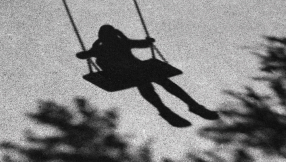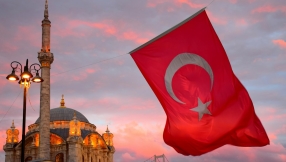
Sometimes when you are in the middle of a crisis the best thing to do is also the hardest – to step back and take a look at the bigger picture. The urgency of the immediate and the sense of an approaching catastrophe can cause us instinctively to focus on the danger at hand.
In today's 24/7 globalised information-rich and wisdom-poor society, we are faced with such an unrelenting stream of bad news that it seems as though we are drowning. The temptation to bury our head in the sand is understandable. "Oh no,' we cry, 'not another article/report/analysis about coronavirus!'" We're fed up with hearing about it and just wish that we could go to sleep for six months and wake up when it's all over and normal life has been restored.
That certainly is my reaction. But there is a bigger picture that we need to look at here, because a sense of perspective as we look at the past and the future will really help us to cope with the present.
This pandemic is bringing out, as most disasters do, the best and the worst in human nature. There are stories of sacrifice and care. There are stories of selfishness and exploitation.
It is certain that humanity will find a vaccine for this particular strain of coronavirus, just as it is certain that there will be future plagues. But what is the vaccine for fear? Because there is no doubt that fear is stalking much of the world – in much the same way it did during the Black Death of 1347, when one third of the European population died. (Europe is now, according to WHO, the epicenter of the coronavirus pandemic.)
I share that anxiety. The inbuilt natural fear of death that we all have is exacerbated by the constant drip-feeding of bad news – and the social contagion that ensues. I laughed and despaired at the panic buying of toilet roll, and yet as I sat in the wee room the thought went through my mind: we need to buy some more toilet paper!
I am concerned for my elderly parents for whom this disease would be far more serious than for me. And for my daughter, a nurse in London, who has been appointed a coronavirus nurse in one of the city's busiest hospitals. Every day I pray that she would be kept safe. And I would be lying if I said I did not care for my own personal health. Ever since I came close to death in 2011, I have been aware of the fragility of life and how we are 'but a breath'. At times that realization is freeing...at other times it resurrects fear.
One of my greatest concerns is that the Church far more often reflects the society than it does lead or love it. This pandemic is a real test for the reality of our faith and the relevance of our doctrines. And there is no doubt that our world is being taught some real lessons – lessons the Christian should, if we believe the Bible, already know.
Humility
We are being taught humility. Fintan O 'Toole had a marvelous article in The Irish Times pointing out that we are not kings of the world and we are not masters of our own fate. It's a hard lesson to learn. And one that humanity, in our hubris, has to keep being taught.
History
We have a lot to learn from history – not least because we keep forgetting it. Plague and disease are not new to humanity. When we look at how the Church in the past has dealt with plague – whether in ancient Rome, medieval Europe, 19th century London or numerous other examples we can get a better perspective. My predecessor in St Peter's Dundee, Robert Murray McCheyne died aged 29 after he visited the sick and dying in an epidemic among the poor in the city. The Church today seems to be more concerned about not getting sick, rather than visiting the sick.
Hebel
I love this Hebrew word. I don't really know an exact English equivalent. It's what Solomon uses in Ecclesiastes when he describes everything as 'meaningless' or 'vanity'. It carries the idea of trivial froth. The coronavirus is exposing our societies' Hebel. Sport, wealth, leisure, entertainment – how light and frothy they appear to be in the light of such a foe!
I was in a barber's in Sydney yesterday where my fellow clientele would normally have been outraged at the cancelling of the major sporting events which play such a large part in our lives, but there was general agreement that it didn't really matter. (I loved the sign above the door – "if you're sick you need a doctor, not a barber!").
Hope
That is the great missing thing. Real hope has to be more than the wish that this would soon be over and that we could carry on with life as normal. This virus has exposed the shallowness of that approach to life. Where do we find hope? As always I find it in the word of God. Let me share with you three readings from this morning.
Proverbs 1:20-33 warns us of what happens when we neglect the wisdom that is calling aloud "in the public square". There will be calamity and "disaster that sweeps over you like a whirlwind". The waywardness of the simple and the complacency of fools destroys them but "whoever listens to me will live in safety and be at ease, without fear of harm".
Then there are the great words of Psalm 91 - a Psalm that sustained me when I lay on my bed in the ICU unit in Ninewells hospital, helpless and fearful. We can rest in the 'Shadow of the Almighty' (rather than the shadow of death). We are covered by his feathers, and his faithfulness is our shield and rampart. "You will not fear the terror of night, nor the arrow that flies by day, nor the pestilence that stalks in the darkness, nor the plague that destroys at midday" (v.5-6).
Finally my song for this morning was Psalm 139 where, amongst other things, we are assured that all the days ordained for us were written in the Lord's book before they came to be. These verses surely speak to our situation. Are we listening? Or are we listening to the voices of doom both within our fearful selves and our frightened society?
Listening to what God says is not burying our head in the sand; it is allowing the light to expose our darkness and to point us to a greater and better truth – to The Rock that is higher than us.
"Search me, O God, and know my heart;
my anxious thoughts survey.
Show me what gives offence to you,
And lead me in your way"
(Psalm 139:23-24 – Sing Psalms – The Free Church of Scotland)
David Robertson is director of Third Space in Sydney and blogs at www.theweeflea.com













